Table of Contents

Shopify gambled early and hard on the idea that a community of independent development teams would be able to create a better ecommerce ecosystem than their in-house developers could alone. That gamble was the Shopify Partners Program.
And it has clearly paid off. Shopify now boasts over one million shops and 11% of the ecommerce market share. These shops are kept running by various Shopify Partners and their apps, themes, and expertise.
In this article, we are going to go through the most successful Shopify Partners Apps. These apps have helped countless business owners and customers come together.
Background: Shopify Partner Apps
Shopify started out with its own suite of 40 apps. These were mostly integrations with established platforms, including MailChimp.
When it finally decided to open up the Shopify App Store to Shopify Partners, it created a wishlist of all the apps its customers had been begging for.
Well, the dev community answered, and it kept on answering. Now there are several thousand apps available, and more are being vetted, tested, and approved today. This process protects the shop owners while bestowing trust on all apps so business owners feel safe trying new apps.
The Shopify App Store
Shopify Partners can provide several different services. Shopify experts spend their time doing anything from setting up stores to providing advice on how to fine tune the store’s SEO or make contact with new overseas suppliers.
Shopify Themes is a store where design gurus can provide template store designs to shop owners to simplify the process of having a professional ecommerce destination.
The Shopify App Store is where you can find apps to automate or assist in any task a shopkeeper may have.
Shopify App Store categories
The Shopify App Store has the following categories:
-
Trending apps
-
Top new apps
-
Discounts, sales, and limited-time offers
-
Product upsells and cross-sells
-
New and noteworthy
-
Loyalty and reviews
-
More completed checkouts
-
Advertising, influencers, and social media
-
Search engine optimization
-
Optimized delivery and returns
Broadly speaking, these apps are designed to get more people to the shop, more visitors through the checkout process, or to simplify the process of shop ownership.
How do you know which successful Shopify Partners Apps are best?
While there is no foolproof method of vetting the apps both for their quality and for their ability to help a specific shop, there are 2 things you can take to better ensure an app is the right fit for your business.
-
Read the reviews. While only about one in twenty users will write a review, they are usually an indication of the best and worst cases. That’s because happy and angry people are motivated, and motivated people write reviews.
-
Look for apps with a free trial. This will give the shop owner a chance to go through the app, see how it works, and confirm it meets their needs before spending money.
Good free trials are usually combined with emails and one-on-one customer service as the app owners want to convert to a sale. If there is none of that added customer service, that can be a red flag.
What are the most successful Shopify Partner Apps?
Let’s take a look at some of the most successful Shopify Partner Apps. To make life easier, the apps are divided into the following categories:
-
Email marketing
-
Referral marketing
-
Social media marketing
-
SEO
-
Sales and promotions
-
Loyalty and reviews
-
Delivery and returns
Email marketing
1. Conversio
Conversio sends newsletters, follow up emails, and receipts. Sending receipts is a great extra touchpoint that many shops overlook.
It also sells abandoned cart emails, which is an extremely important step in the sales chain.
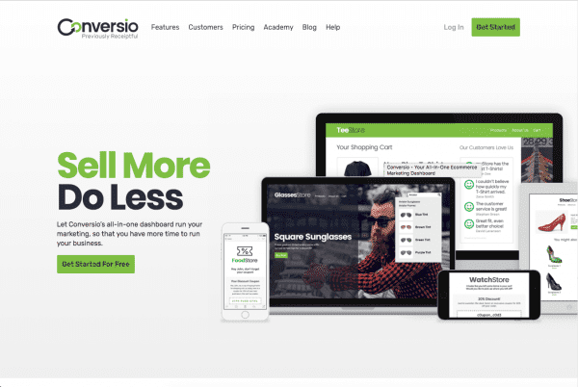
Conversio has a 30-day free trial and then starts at $9/month thereafter.
2. Omnisend
Omnisend uses smart segmentation technology to make sure that each message is sent to only those customers who will find it valuable. Then, it sends those messages out through Facebook Messenger, WhatsApp, Facebook and Google retargeting ads, SMS, web push notifications, etc.
It also makes email campaign creation a breeze with its drag-and-drop email builder.
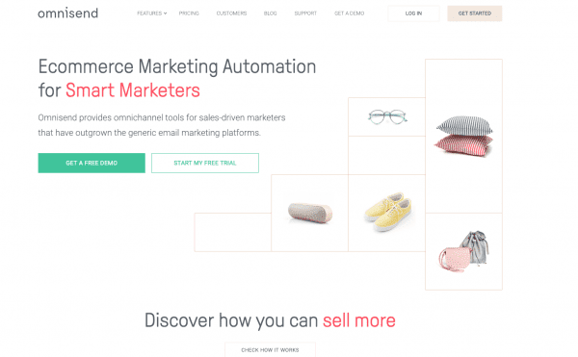
Omnisend has a 15-day free trial, a free basic plan, and then variable pricing that starts at $16/month.
Referral marketing
1. ReferralCandy
ReferralCandy provides the functionality to reward customers for sharing your store with their friends. This “social proof” that a store’s products are great can lead to more sales.
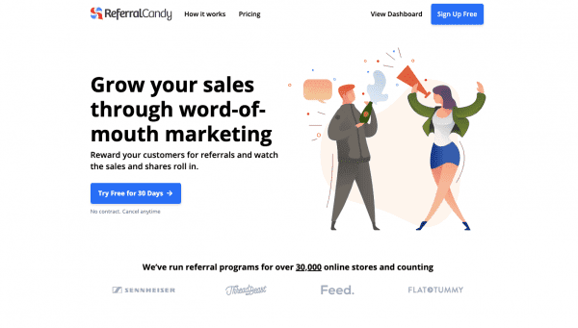
ReferralCandy has a 30-day free trial and then costs $49/month.
2. Smile.io
Smile.io provides easy-to-use loyalty programs that help brands transform one-time sales into repeat customers.
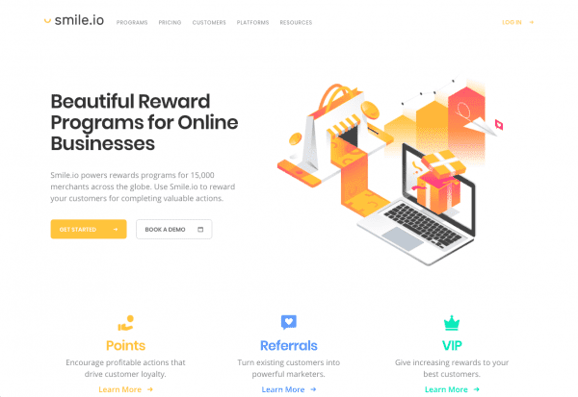
Smile.io has a free tier up to 500 program members and then costs $49-599/month thereafter.
Social media marketing
1. Shoelace
Shoelace is designed to retarget a prospective customer audience on Facebook, Instagram, or using Google Ads until the customers come to the store and make a purchase.
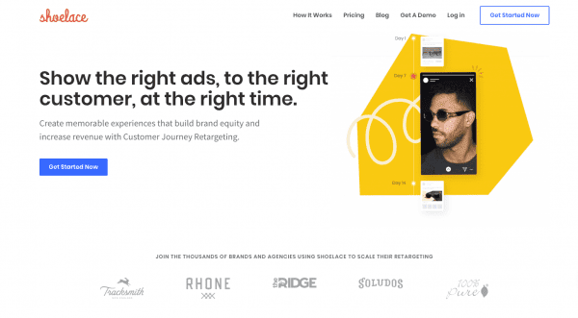
Shoelace starts at $79/month for automations, $420/month for their retargeting program, and increases for more personalized help from there.
2. Kit
Kit is a chatbot that can help run Facebook or Instagram ads. The user simply sends Kit messages about their desired ad campaign, and then Kit does the rest.
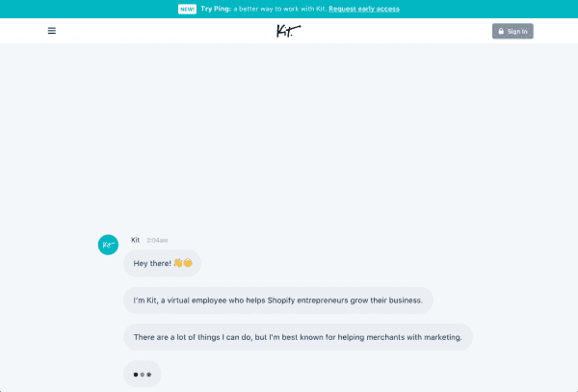
Kit is a free app.
SEO
1. SEO Image Optimizer
Google Images is now the second most used search engine (after Google, obviously), and image optimization best practices still lag behind those for written content. SEO Image Optimizer gives you the ability to add alt tags to images so they rank better and more often.
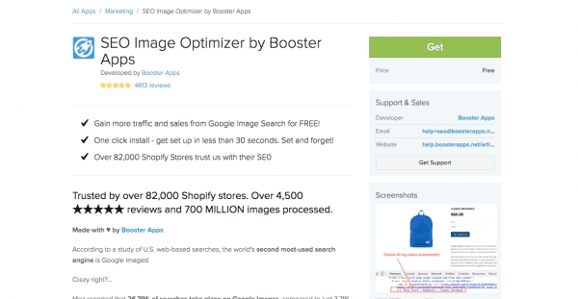
SEO Image Optimizer is free for all users.
2. Plug In SEO
Plug In SEO is a simple alarm system that alerts the user when there are any issues with their SEO. It then directs the user to the problems so they can be fixed.
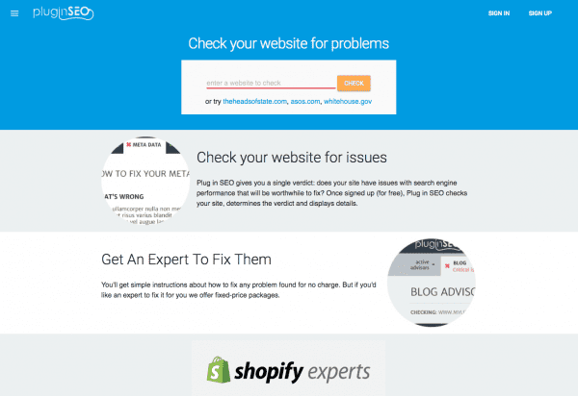
Plug In SEO is free, but you can upgrade to Plug In SEO plus for $20/month
Sales and promotions
1. PriSync
Prisync monitors your competitors’ prices and then uses a set of user-defined rules to dynamically change the prices in a shop in real time so the store remains competitive.
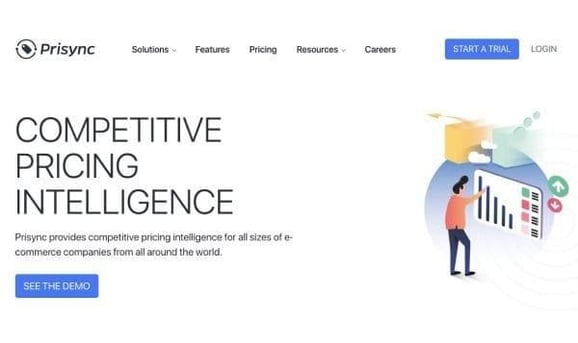
PriSync has a 14-day free trial, then has a $129/month premium plan and $229/month platinum plan.
2. ReCharge
ReCharge is designed for stores that have recurring billing. For example, a shop that sells subscription boxes can use ReCharge to automate those recurring invoices.
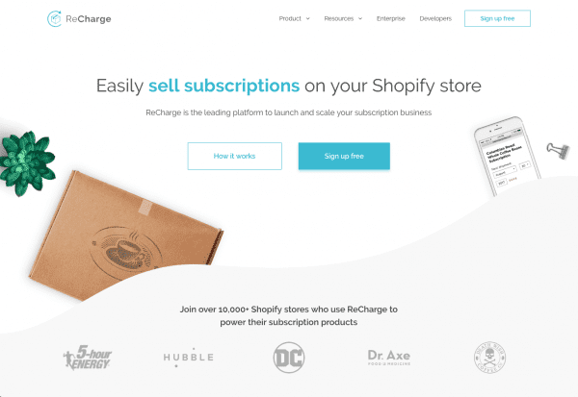
ReCharge has a free-to-install tier that charges 1% + 10¢ per transaction and a Pro tier that charges $300/month in addition to 1% + 19¢ per transaction.
Loyalty and reviews
1. Judge.me
Judge.me helps store owners collect and display star ratings and reviews about their products.
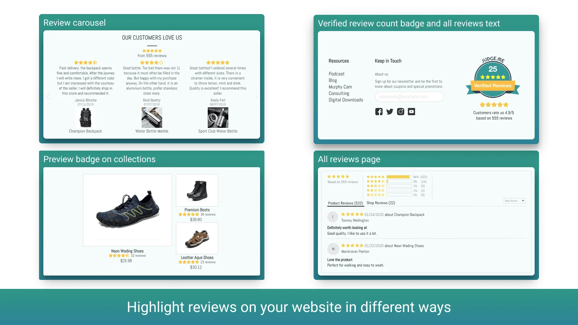
Judge.me has a free tier and then a second tier that costs $15/month.
2. Rivo
Rivo helps shops engage with their customers to increase sales without a higher marketing spend.
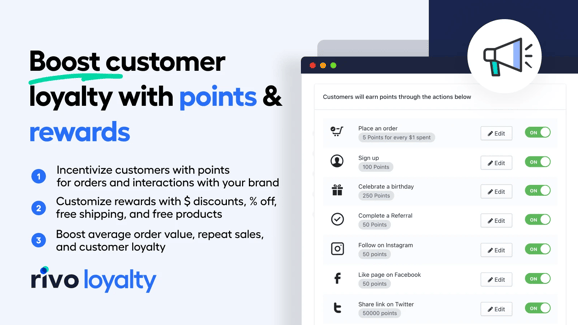
Rivo has a free tier and then paid tiers at $29/month and $49/month.
Delivery and returns
1. Alpaca Local Pickup & delivery
Alpaca Local Pickup & delivery provides curbside pickup and local delivery functionality for stores that sell to local customers online and offline.
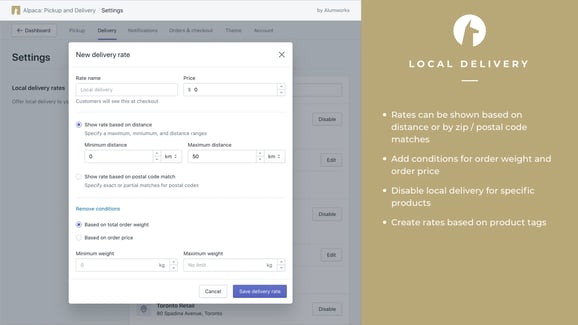
Alpaca Local Pickup & delivery has a 14-day free trial and starts at $19/month thereafter.
2. Returnly
Returnly provides a fully automated return process for Shopify shops.
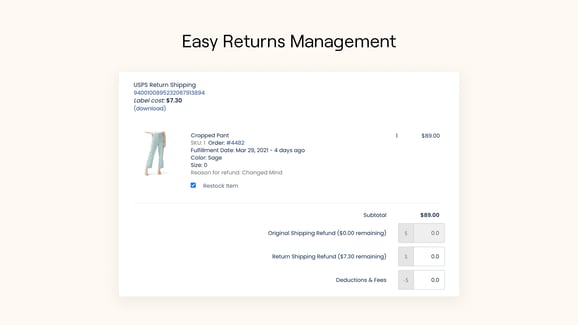
Returnly has a 14-day free trial and then starts at $29/month with pricing based on the store owner’s Shopify tier.
Summary
Whatever category your successful Shopify Partner Apps fall into, you need to track its growth metrics. To do this, you need an analytics tool that integrates directly with your Shopify account, like Baremetrics. Start a free trial today.




